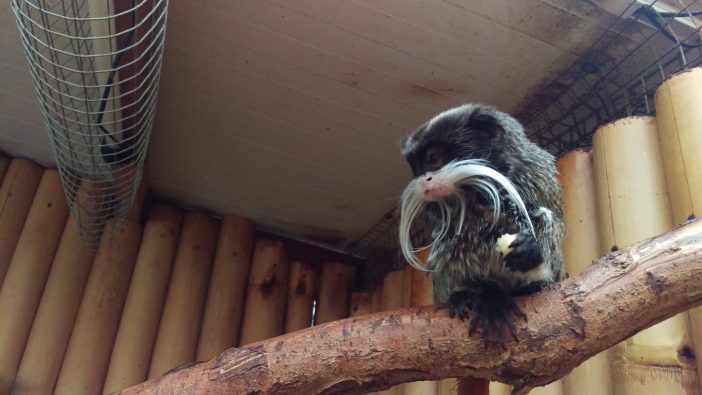YESTERDAY was Monkey Day, however, Manchester is still no safe home for monkeys, despite shocking statistics brought to our attention last year.
Between 2011 and 2015, there were more calls to the RSPCA regarding the welfare of a primate in Greater Manchester than anywhere else in the country, with 34 calls being made.
A year on, nothing has changed, and Manchester is still rife with illegal monkey ownership.
It is legal to own a monkey as a pet in the UK, but only with a license granted under the Dangerous Wild Animals Act.
Zookeeper at South Lakes Safari Zoo, Gavin Clunie, says: “They’re not domesticated animals, they’re wild animals that have basically come from a wild environment.
“Although people can potentially get a license, having a license and having the knowledge to keep these animals are two very different things.”
The RSPCA currently receive one phone call every three days relating to the welfare of a primate.
There are now calls by Protecting Primates for the pet ownership of these animals to be banned, as they say in their petition the animals will be “destined for a life of suffering in an unnatural environment”.
This is already the case in 15 European countries for the ownership of certain species of primates.

Mr Clunie adds: “We give them effectively as natural a life as we possibly can in a zoo. That is impossible to do within a home.
“Unless you get a degree in animal management, animal conservation, animal welfare – you’re just reading from a book in the corner of your room, so you don’t have the expertise to keep these animals and react to them in the dynamic way that they deserve.”
He stresses the fact that zoos have the space and correct facilities to re-create the monkeys’ natural environments, whereas people who have them as a pet would not be able to do this.
Hear more from Mr Clunie on the video below.
Monkeys are not the only wild animals that people want as pets however, and Mr Clunie believes that films and TV programmes have a lot of influence as to what animals these are – from monkeys, to lemurs, to meerkats.
Monkeys have been reported to be living in filth in a cage when kept as pets, but this is not just a problem for their health, as monkeys owned by the public are not part of the crucial breeding programmes – which adds to the problem of certain species being endangered.
Mr Clunie says: “A zoo isn’t just a collection of animals, you’ve got to think of us as a genetic arc as well. We have animals transported between zoos as part of international breeding programmes.
“It is incredibly important that we keep it as scientific as possible in the zoo world, and that the wider public don’t involve themselves in the breeding of these animals.”
Primates can also catch any contagious conditions that people have, and vice versa.
Quays News tried to contact some individuals who sell monkeys in Manchester, but could not obtain a comment from them.
BY CORAL DANIELS AND MICA ROBINSON















Recent Comments